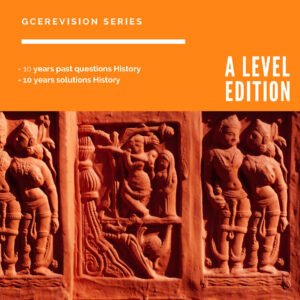cameroon gce intermediate level 2025 information processing 1
cameroon gce intermediate level 2025 information processing 1
Data Extraction from Image 1
SECTION A
(Answer any THREE Questions)
1.
- a) Advance five (5) ways a mother will take care for her 11 month old child who is suffering from malaria. (5 marks)
- b) List five (5) nutrients necessary for children. (5 marks)
- c) Give five (5) importance of breast feeding to pregnant women at the infant welfare clinic. (5 marks)
- d) State five (5) steps to follow in order to control diarrhoea and vomiting in a baby. (5 marks)
- e) Enumerate five (5) ways a young lady can use to avoid genital irritations. (5 marks)
Total (25 marks)
2.
- a) (i) Define artificial feeding. (2 marks)
- (ii) List four (4) advantages and four (4) disadvantages of artificial feeding to a baby. (8 marks)
- b) List and explain 3 growth disorders and deficiency diseases in children. (6 marks)
- c) Outline five (5) symptoms of miscarriages. (5 marks)
- d) Many reasons account for the death of children, outline four (4) ways to prevent infant mortality. (4 marks)
Total = (25 marks)
3.
- a) Advance seven (7) types of family crisis that may arise in a nuclear family. (7 marks)
- b) Give six (6) important precautions to observe during weaning. (6 marks)
- c) (i) What is a fracture? (2 marks)
- (ii) State five (5) first aid measures to apply when someone has a fracture. (5 marks)
- d) Define ectopic pregnancy and state three (3) causes. (5 marks)
Total = (25 marks)
4.
- a) (i) What is a vaccine? (2 marks)
- (ii) List three (3) vaccines given to children from birth to one (1) year. (3 marks)
- b) Outline five (5) functions of the infant welfare clinic. (5 marks)
- c) List three (3) aspects of mental development and five (5) aspects of physical growth and development. (8 marks)
- d) Outline five (5) outward signs of normal growth in a child. (5 marks)
- e) Name two (2) common illnesses in a new born. (2 marks)
Total = (25 marks)
Data Extraction from Image 2
1. Family life is influenced by:
- A) Weather and climate
- B) Political ideologies
- C) Roles, responsibilities and expectations of members
- D) Language
2. The family life cycle typically begins with:
- A) Birth of first child
- B) Marriage
- C) Civil wedding
- D) Traditional wedding
3. Brother/sister relationship is called:
- A) Uncle
- B) Aunt
- C) Niece
- D) Siblings
4. Identify the human reproductive cells.
- A) Ovary, sperm
- B) Uterus, oviduct
- C) Sperm, ovum
- D) Egg, ovum
5. Monogamous marriage is compose of:
- A) One male and one female
- B) One male and two females
- C) Two males and three females
- D) One female and two males
6. Select a secondary sexual characteristics in a boy.
- A) Enlargement of buttocks
- B) Secretion of semen
- C) Increase of height
- D) Deepening of voice
7. Female secondary characteristics include:
- A) Enlargement of muscles and deepening of voice
- B) Enlargement of buttocks and development of breasts
- C) Enlargement of buttocks and deepening of voice
- D) Enlargement of muscles and development of breasts
8. The monthly discharge of blood by an adolescent girl is:
- A) Ovulation
- B) Fertilization
- C) Menstruation
- D) Bleeding
9. The normal menstrual cycle takes:
- A) 22 days
- B) 28 days
- C) 32 days
- D) 14 days
10. Identify the male sex hormone.
- A) Progesterone
- B) Estrogen
- C) Follicle stimulating hormone
- D) Testosterone
11. Fertilization takes place in the:
- A) Ovary
- B) Fallopian tube
- C) Uterus
- D) Cervix
12. The surgical means of delivering a baby is known as:
- A) Vasectomy
- B) Tubal ligation
- C) Caesarean section
- D) Forced delivery
13. Select the vaccine that prevents tuberculosis.
- A) DPT
- B) BCG
- C) Pertussis
- D) ATT
14. Select a specialist working in a PMI.
- A) Midwife
- B) Gynecologist
- C) Paediatrician
- D) Obstetrician
15. At what stage is the measles vaccine administered?
- A) 4 Months
- B) 3 Months
- C) At birth
- D) 9 Months
16. A substance administered to the body to give it the ability to fight infections is a/an:
- A) Drug
- B) Vaccine
- C) Antibiotic
- D) Antigen














